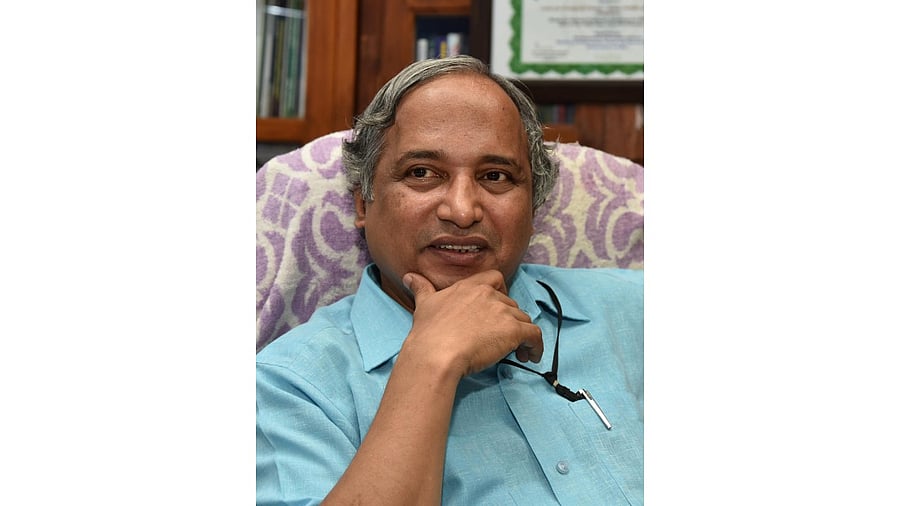
Dr T V Ramachandra
Credit: DH File Photo
Bengaluru: Dr T V Ramachandra, the Indian Institute of Science (IISc) professor, who famously predicted Bengaluru’s tryst with drought almost a decade ago, has blamed the successive government for pushing Bengaluru to go the Cape Town way.
The professor at the Centre for Ecological Sciences criticised the state government’s plan to fund the drilling of new borewells when there is no water even under 1,800 feet and asked that the money be spent on harvesting rainwater both in lakes and individual buildings.
In a short interaction with DH during his visit to Bellandur Lake on Thursday, Prof Ramachandra gave the example of the recently rejuvenated Sarakki Lake, which has helped in increasing the groundwater table by 320 feet.
"There should be adequate availability of water for any region to survive. We have been facing a water crisis for the last 4-5 years. Bengaluru has reported a 1,055 per cent increase in concretisation. During the same period, 88 per cent of vegetation was lost and 79 per cent of the waterbodies vanished,” he said, quoting his research papers. “We need both lakes and vegetation to make the city porous."
Bengaluru, he said, can be sustainable provided the government focuses on two solutions.
"The city receives 700 to 850 mm of rainfall per year. That is an average of 15 TMC. Bengaluru requires about 18 TMC of water and rainwater alone provides 70 per cent of that requirement. The best solution is to harvest the rainwater. We have to catch the rain. This will give us additional water for 4-5 months. We can do it using the lakes, too. It helps in recharging,” the professor said.
The second solution, he said, is to develop mini-forests of two hectares of native species in as many places as possible.
"Bengaluru recorded about 35 degrees Centigrade temperature. We need heat sinks such as waterbodies and vegetation in the city,” he said.
Ramachandra termed the government’s recent plan to allocate funds for drilling borewells as an “ad hoc” measure.
“When there is no water even after drilling 1,800 feet deep, what is the point in pumping more funds? There should be a limit to irresponsible decision-making. Drilling borewells in the buffer zone of the lake will not solve the problem. The lake has been loaded with polluted water, sewage and industrial effluents. We will only be giving contaminated water to the people. This will lead to a higher number of cancer cases and kidney failures,” he said.